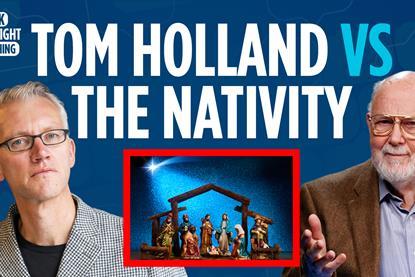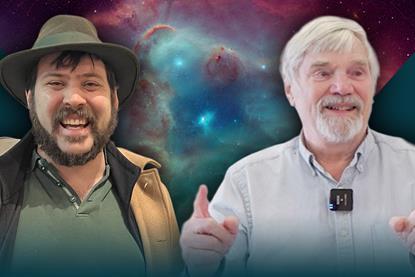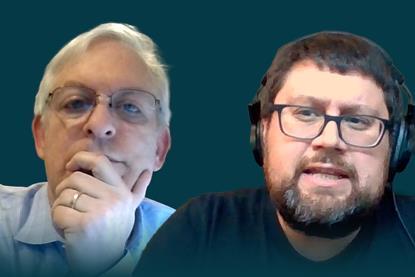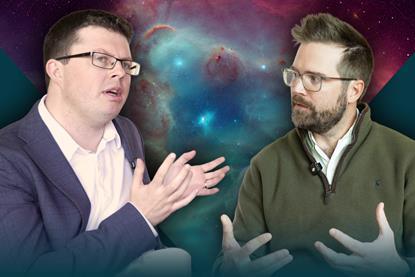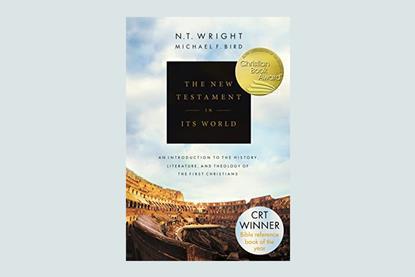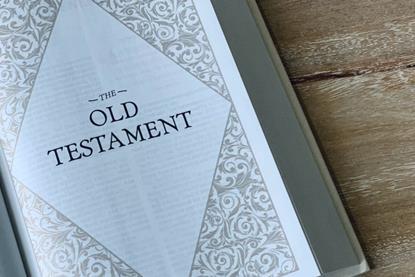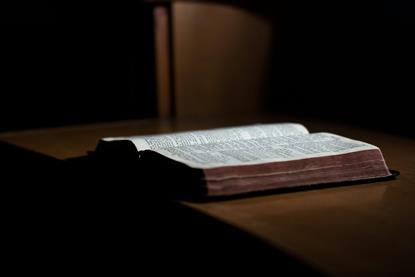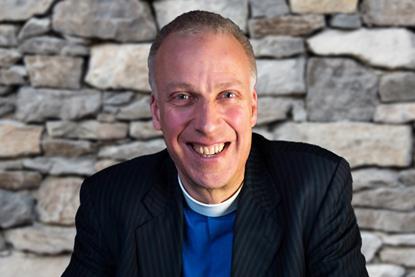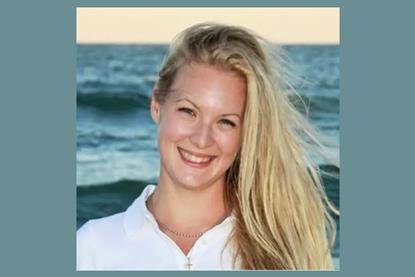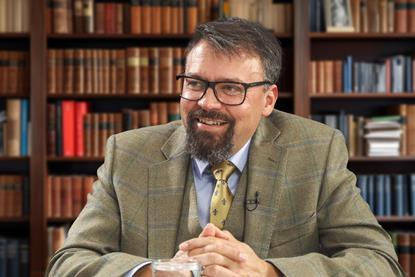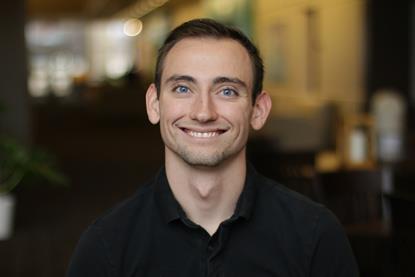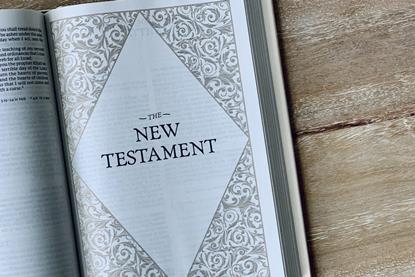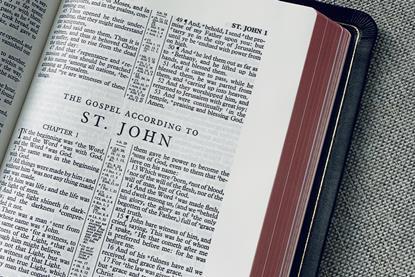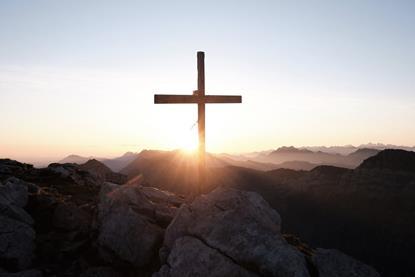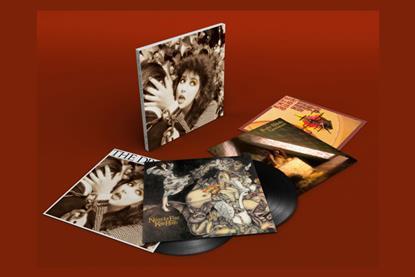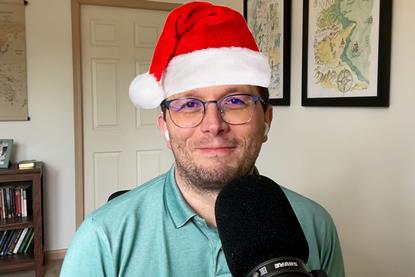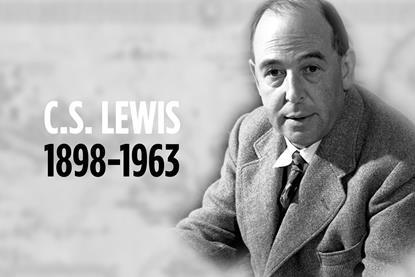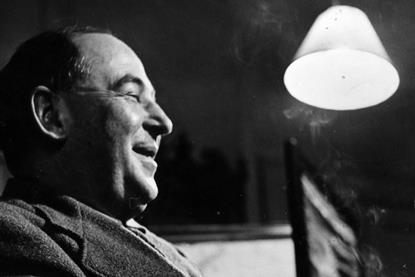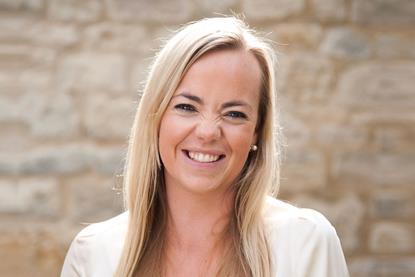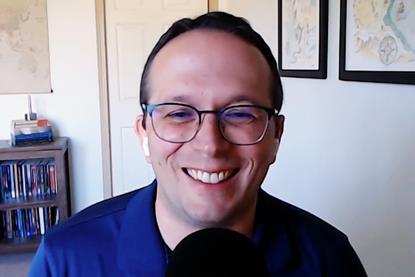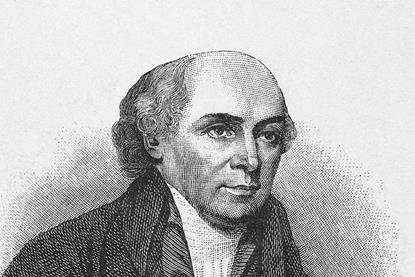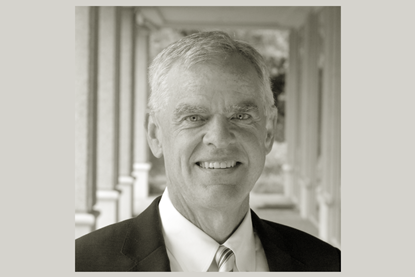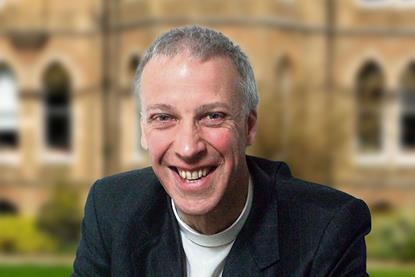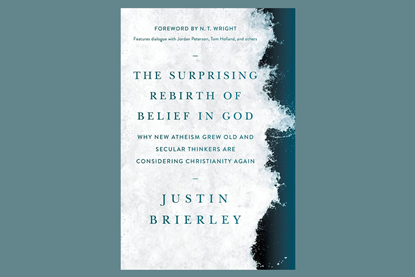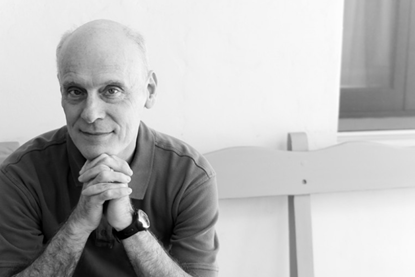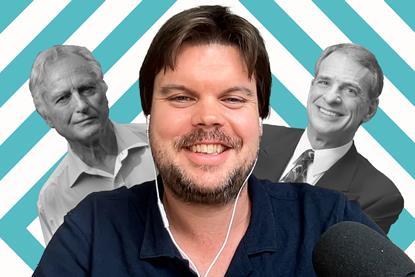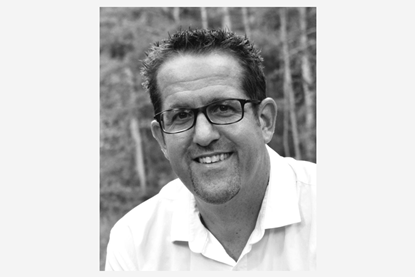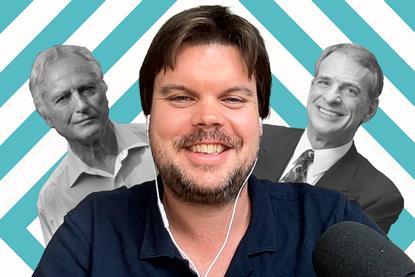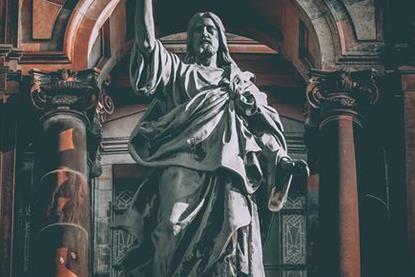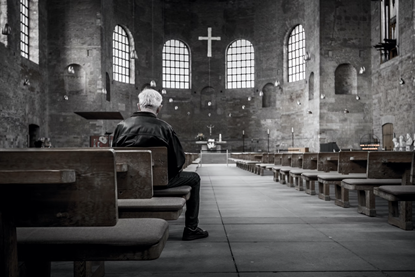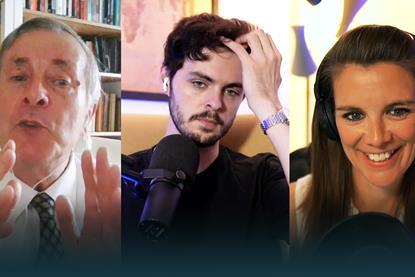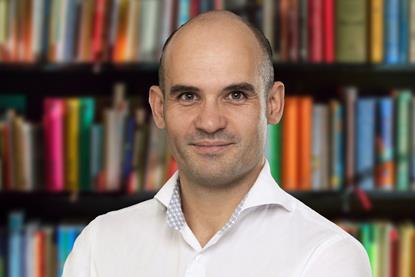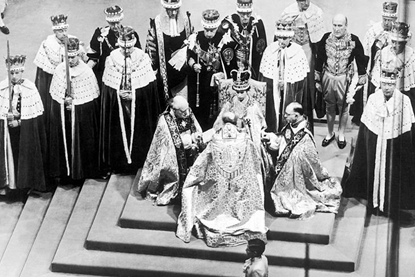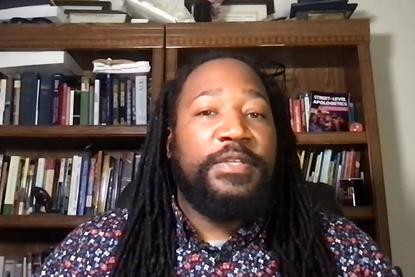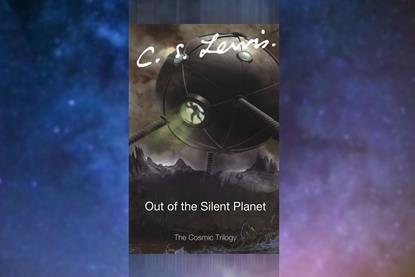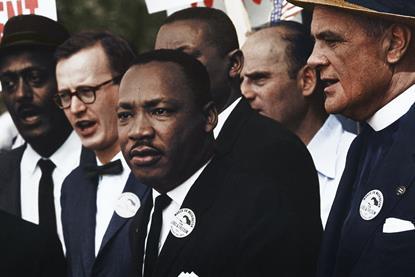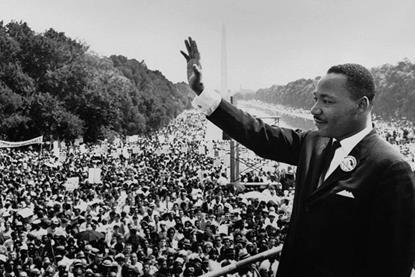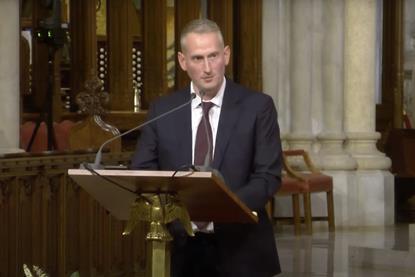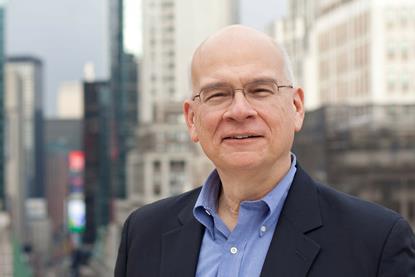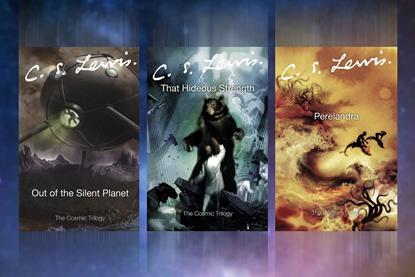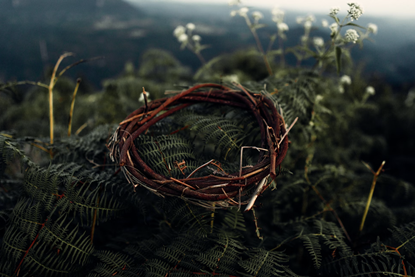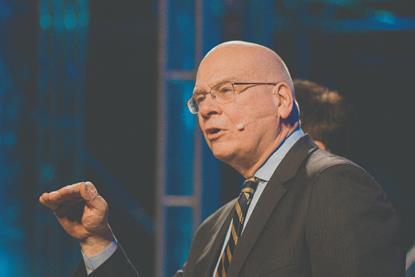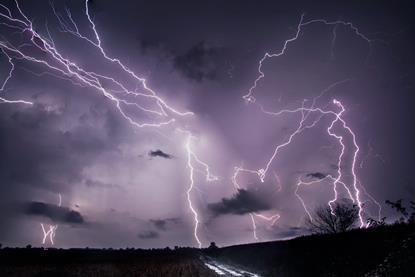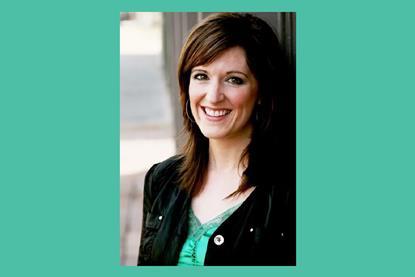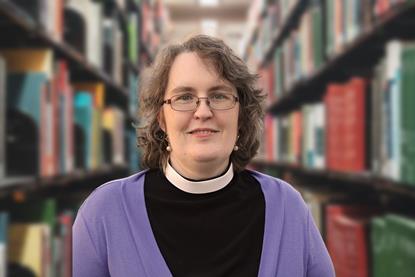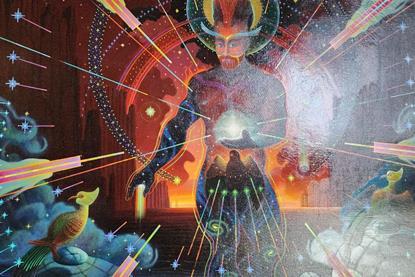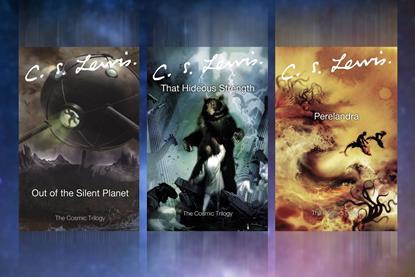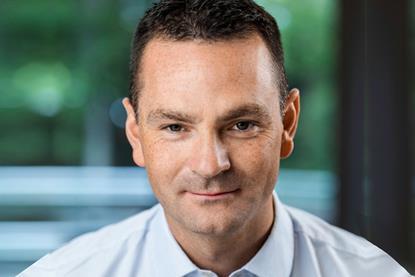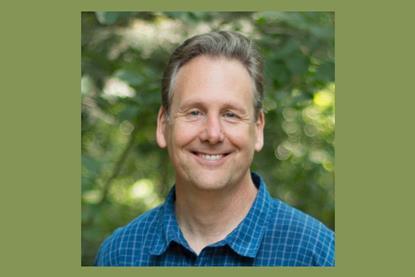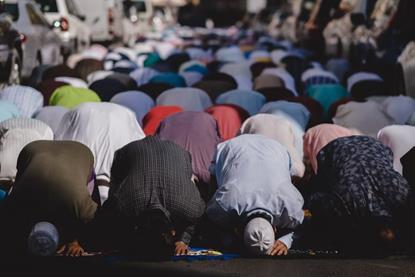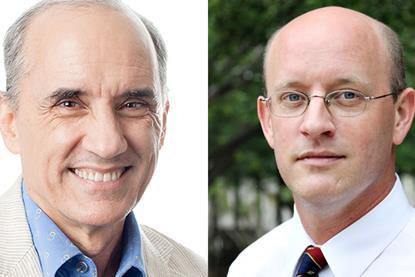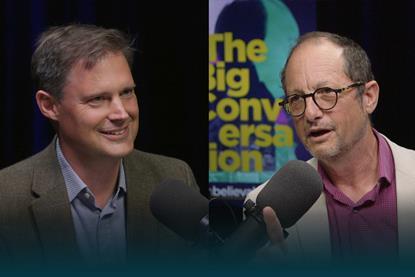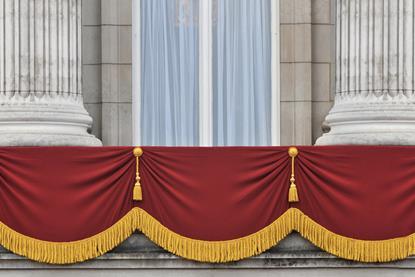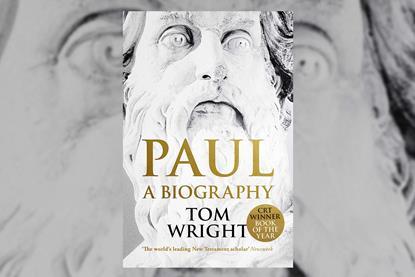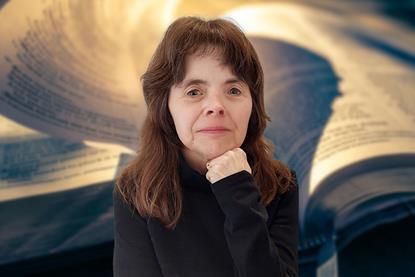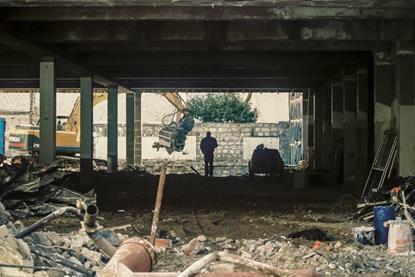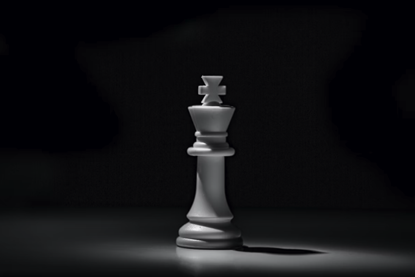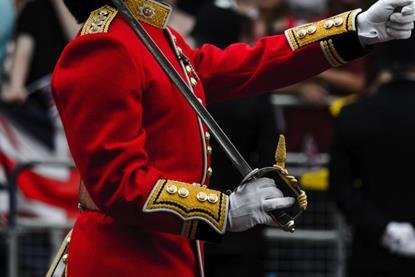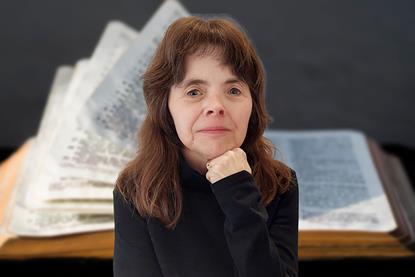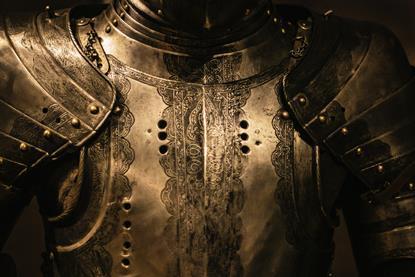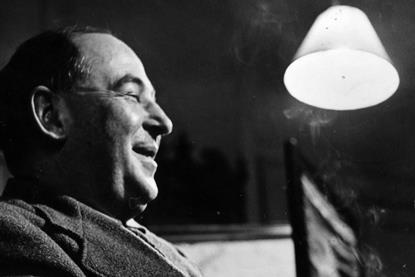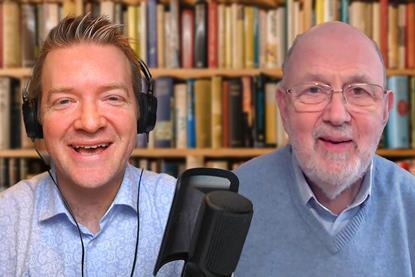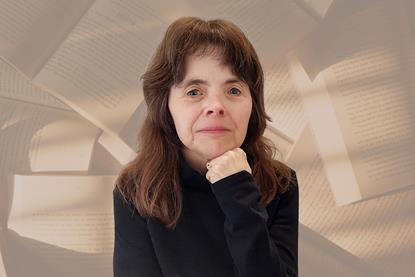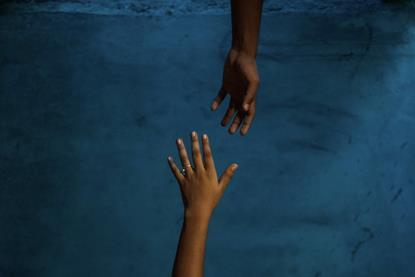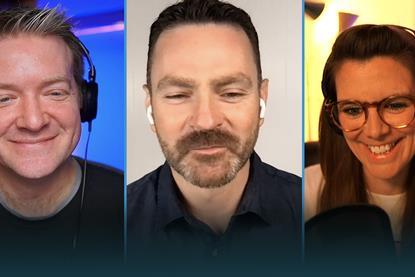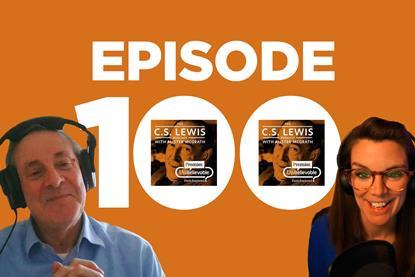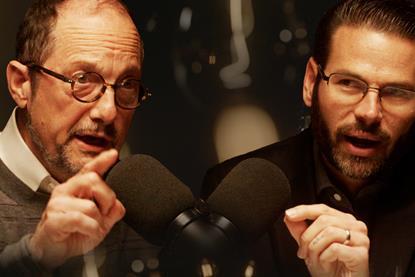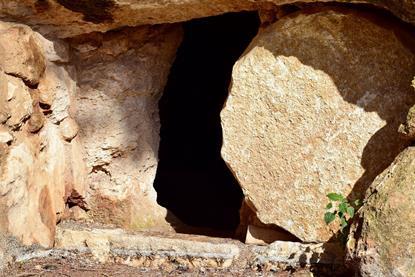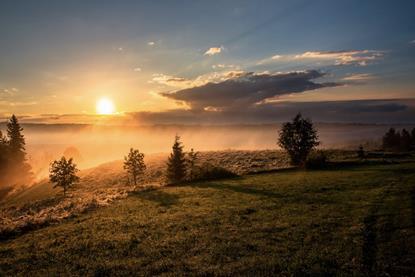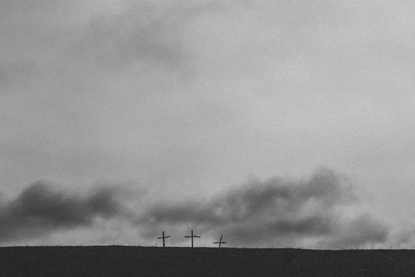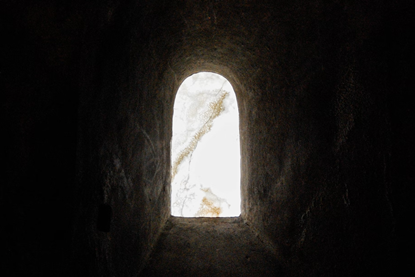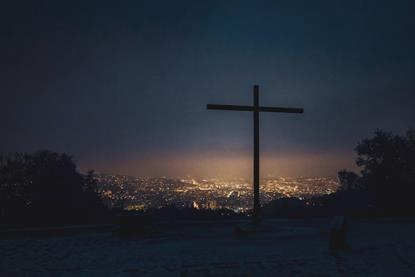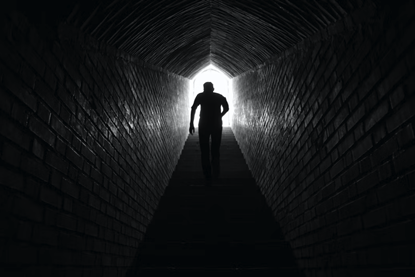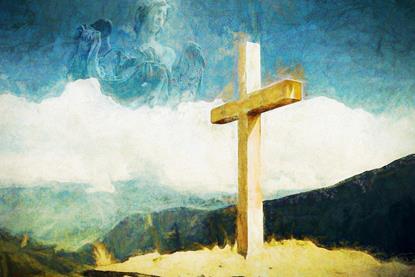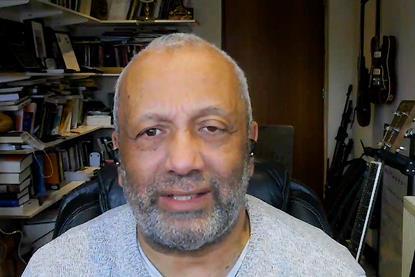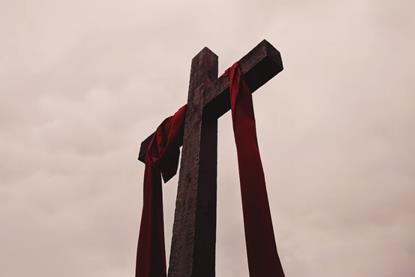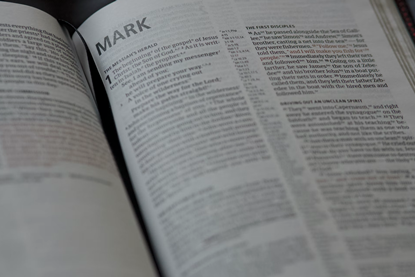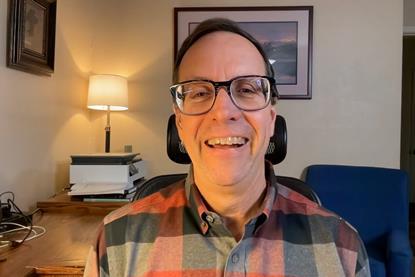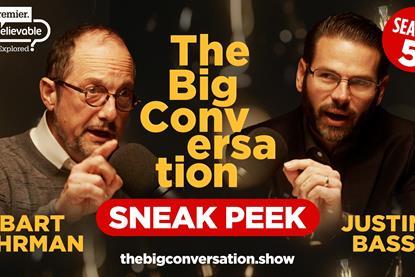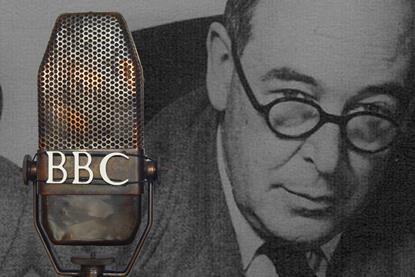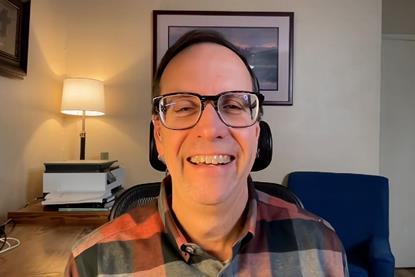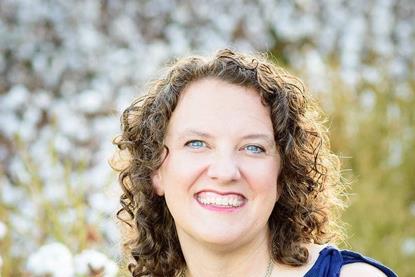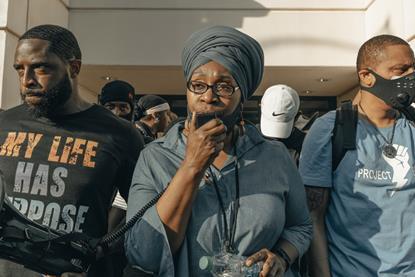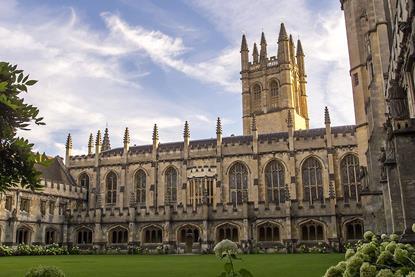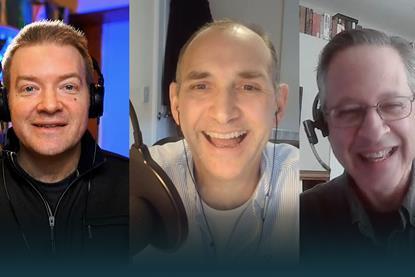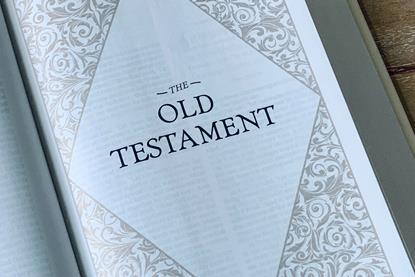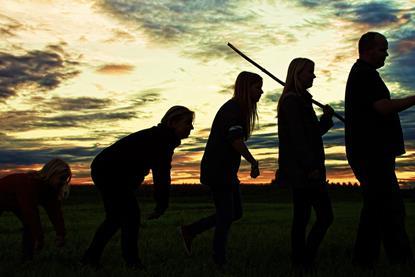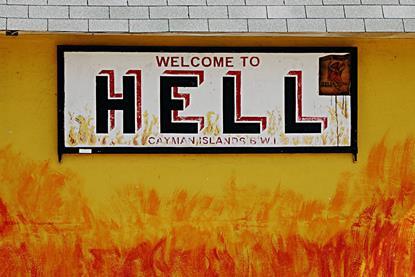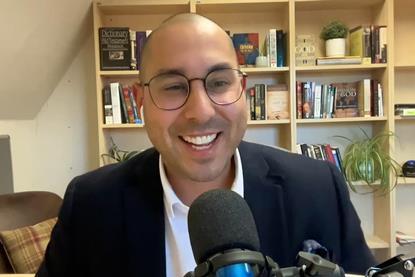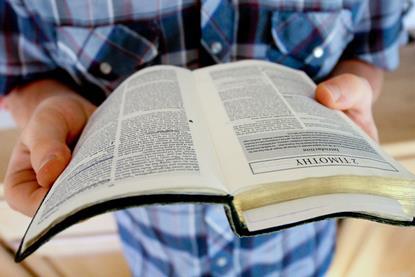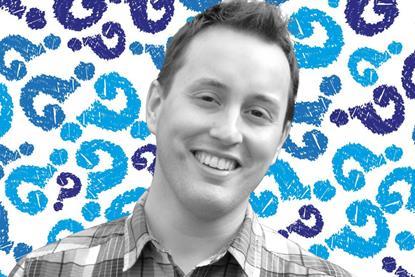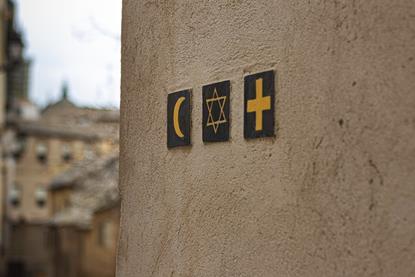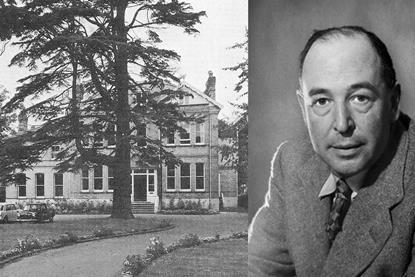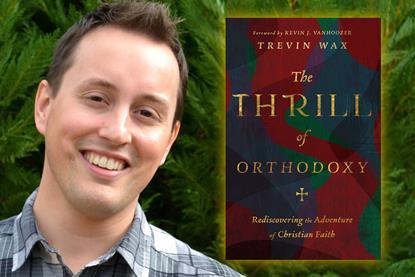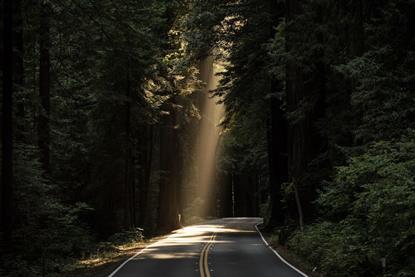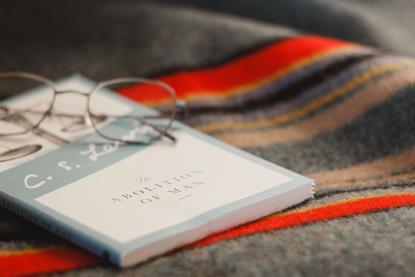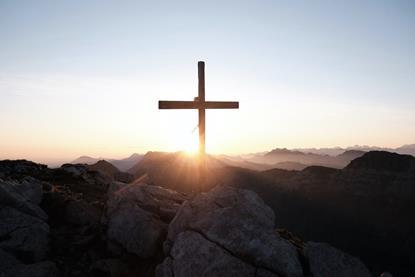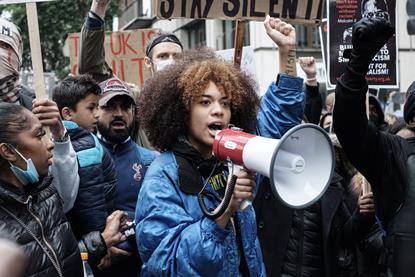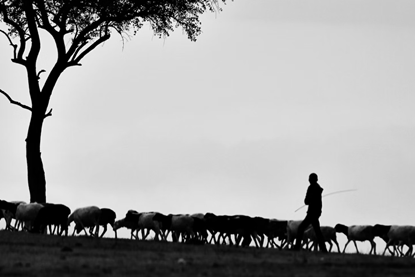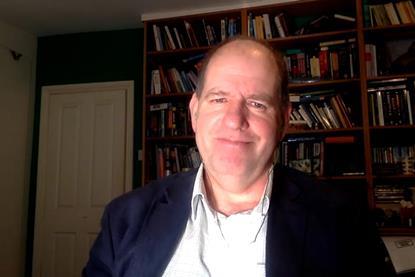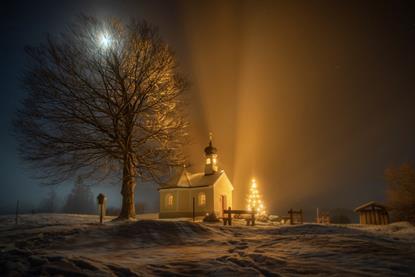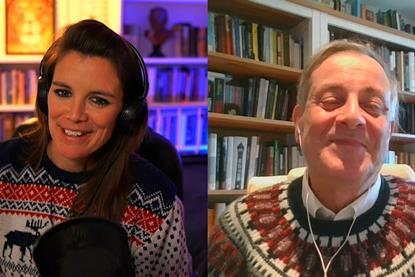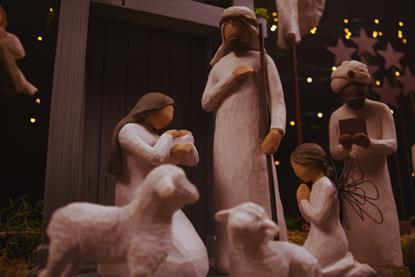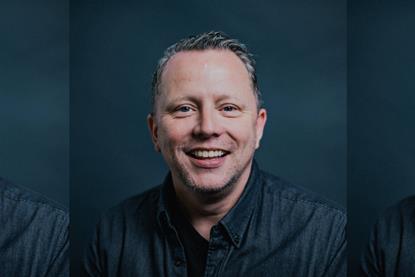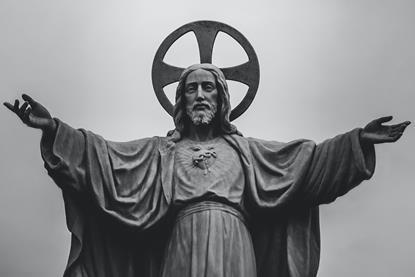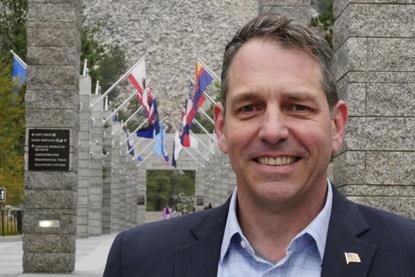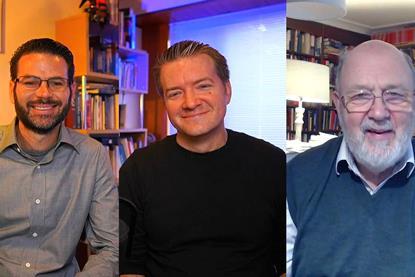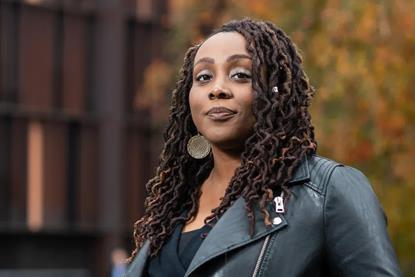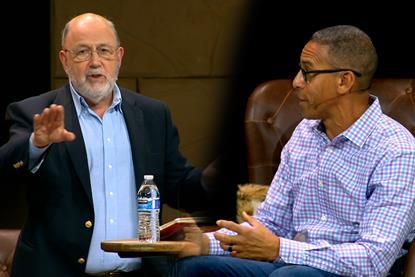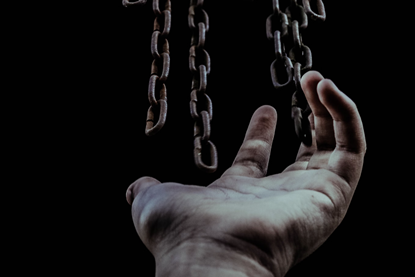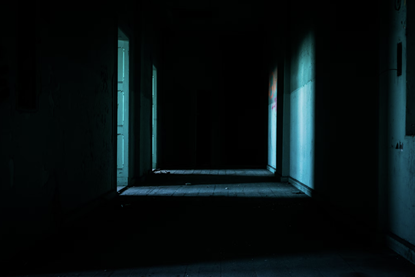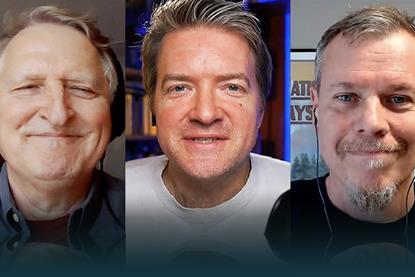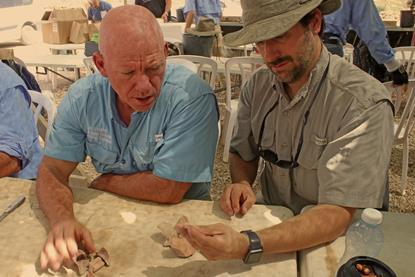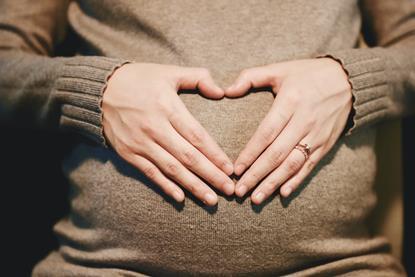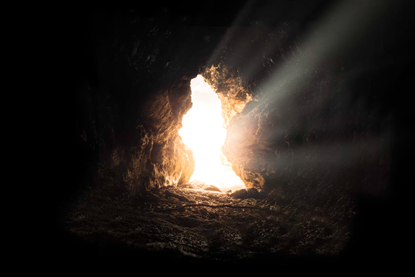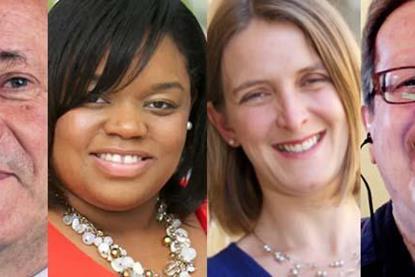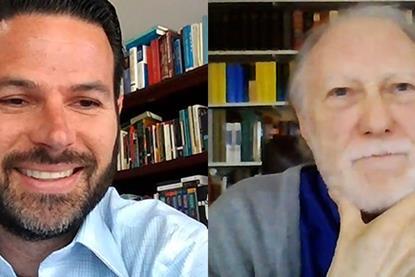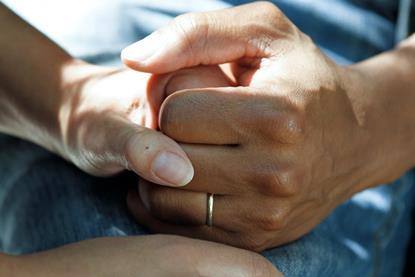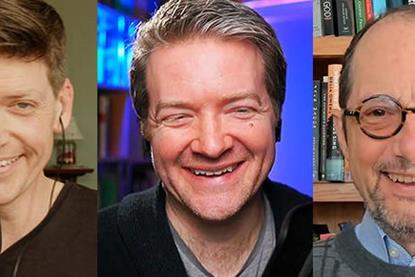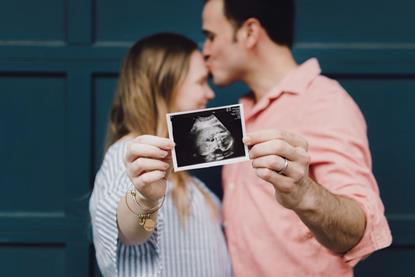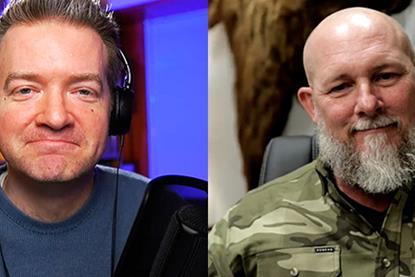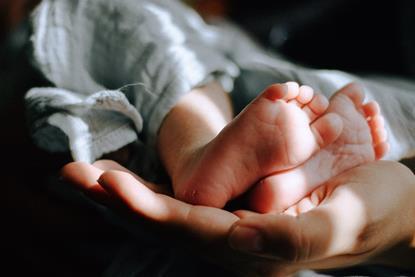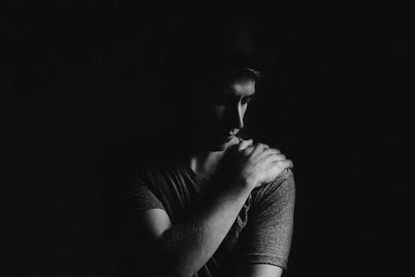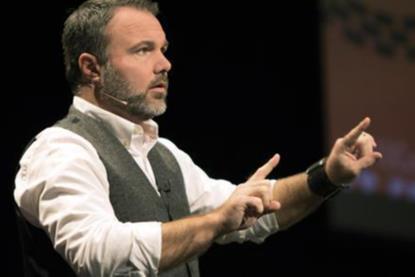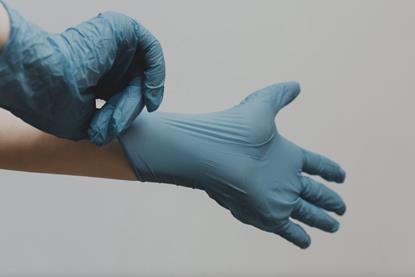History
Was the Nativity invented to fulfil Prophecy? NT Wright answers
Was Jesus really born in Bethlehem, or did the gospel writers “invent” the story to fit prophecy? Did a Roman census ever force people to travel back to their ancestral towns? And what about Herod’s massacre of the innocents – pure theology, or plausible history?
Is life meaningless without God? A live school debate between Atheism UK and Christian apologist
In this live edition of Premier Unbelievable? from Aylesbury High School in the UK, stand-in host Sam McKee moderates a thought-provoking dialogue between:
Did Jesus fulfil Scriptural Prophecy? Jonathan Rowlands vs Rabbi Marc B Shapiro
As Advent approaches, John Nelson hosts Dr Jonny Rowlands (St Mellitus College, UK) and Rabbi Prof Marc Shapiro (University of Scranton, USA) to ask: did Jesus fulfil scriptural prophecy?
Beyond Naturalism: What’s Real? Dr. Alex Carter vs Dr. Zachary Ardern - Hosted by Sam McKee
What is really real? In this wide-ranging conversation, Dr Zachary Ardern (evolutionary biologist, Wellcome Sanger Institute), Dr Alex Carter (philosopher, University of Cambridge), and Dr Sam McKee (science historian, Manchester Metropolitan University) sit down to revisit one of the oldest debates in human thought — the relationship between science, religion, and ultimate reality.
The Trial of Jesus: 18 Broken Laws Behind Good Friday
Bob Lepine, author of 12 Things You (Probably) Didn’t Know About Easter, shares how 18 laws were broken to condemn Jesus to death on Good Friday
Is God Dead? The intersection of Nietzsche’s nihilism and the limits for pursuing justice
Apologist Adam Coleman considers a famous exchange between two great abolitionists, and the meaning and purpose that God gives us
Divine Humility: The Astonishing Reality of God’s Arrival in a Manger
Erik Strandness delves into the profound humility of the Christmas story, exploring how the birth of Christ in a manger challenges our expectations of divinity and invites us to encounter God in an entirely new way
#235 The New Testament in its World with special guest and co-author Mike Bird (Classic)
Today’s episode features a special guest - renowned Australian Bible scholar, co-authored and friend of Tom’s, Mike Bird. Together, they delve into their groundbreaking collaborative work, “The New Testament in its World: An introduction to the history, literature, and theology of the first Christians” which both combines and unpacks years of Tom’s major study into this seminal volume.
Is the Old Testament Story of Israel Historically Reliable?
Verifying every fact in the OT using archaeological evidence is not possible, but there is good justification for certain key aspects of ancient Israel’s story
What is truth, and what happens if society rejects that it even exists?
What is truth, and what happens if society rejects that it even exists? Two recent Premier Unbelievable debates highlight the difference between a Christian and a relativist worldview
Unapologetic: #115 Michael Lloyd: Culture wars, creativity and relativism
Could a decline in creativity and beauty be why the Church has become increasingly irrelevant and unlikeable? What are culture wars and how should we respond? Is relativism flawed and what is the alternative? Does human creativity point to God? Rev Dr Michael Lloyd, principal of Wycliffe Hall, shares his thoughts about culture, creativity and The New Renaissance Project.
Women in apologetics: From doubter to proclaimer
Although Kristen Davis grew up in church, profound doubts kept God from being real to her. Everything changed when she discovered apologetics and biblical archeology. Apologist Joel Furches shares her story
Unapologetic #114: Joe Boot: Resurrection, miracles and climate change
Is there any proof for the resurrection of Jesus? Are miracles a genuine possibility? How should we respond to global injustice and environmental breakdown? What practical ways can we use apologetics in everyday situations? We hear from Rev Dr Joe Boot, founder and president of the Ezra Institute for Contemporary Christianity. This interview was recorded in front of a live audience at Holy Trinity Church, Aylesbury in partnership with Aylesbury Vale Youth For Christ.
Is atheism rational? How a physicalist atheist discovered Christianity
Mason Jones was convinced there was no phenomena that could not be explained apart from what’s physically observable. Here, researcher Jana Harmon described how Mason grew unsatisfied with the limitations of his atheism and discovered the rationality of a Christian worldview
Are The New Testament documents reliable?
Apologists Nick Peters and Joel Furches explore how accurate this ancient writing really is
For better or worse: How has Christianity impacted the intellectual heritage of the West?
Apologist Joel Furches explores Christian history and its impact today
What part of our body could stretch all the way to Pluto?
Dr Ruth Bancewicz from the Faraday Institute shares some fascinating facts about DNA on DNA day
Is the Gospel of John anti-Jewish?
Lay minister Dr Peter Harris explores the truth of the recent claim made by Rev Michael Cohen that John’s Gospel is anti-Judaist
Unapologetic #97 Jay Y Kim: Did Jesus really rise from the dead?
Pastor Jay Y Kim explores how Holy Week brings hope. Why are we all so afraid of death? What difference does Easter make? Did the resurrection actually happen and why does it matter?
Are we all guilty of murder?
As we approach Easter, Marsh Moyle, author of Rumours of a Better Country, reflects on murder
What do Kate Bush and Jesus have in common?
Author Drew Cordell looks at why Christianity is worth investigating
Why Christianity could trend in 2024
As we embark on a new year, author Drew Cordell reflects on the relevance of God in Western society
The CS Lewis Podcast #135 David Bates: What did Christmas mean to Lewis?
David Bates from Pints With Jack shares some of CS Lewis’ thoughts about Christmas. What are some of his key works that elucidate this topic? Did the festive period lose its significance when Lewis became an atheist? Plus, we catch up on how the inaugural CS Lewis Reading Day went last month.
The CS Lewis Podcast #133 Alister McGrath: Was Lewis a prophet and does he speak to contemporary cultural issues?
Professor Alister McGrath and Ruth Jackson continue their discussion about whether CS Lewis is still relevant. Was he something of a prophet? What can we learn about the way Lewis engaged with modern media? How did he make complicated theological concepts relatable? In what ways has Lewis influenced our culture and is he able to speak to contemporary topical issues, such as transgenderism?
The inaugural CS Lewis Reading Day: Why should Tolkien geeks have all the fun?
CS Lewis podcaster, David Bates, shares why he helped initiate a campaign to commemorate Lewis with an annual Reading Day on November 29th
What is Wicca and how does it differ from Christianity?
Apologist Joel Furches explores the central beliefs of Wicca and looks at its historical relationship with Christianity
Unapologetic #78 Amy Orr-Ewing: Why are women central to the Christian story?
Dr Amy Orr-Ewing, author of Mary’s Voice, explores the context of Mary, mother of Jesus, and looks at why women play such a significant role in Christianity. Plus, what is the Magnificat, why is it so revolutionary? And how is it relevant today?
The CS Lewis Podcast #131 David Bates: CS Lewis Reading Day
David Bates and his team at Pints With Jack have helped establish a day to celebrate CS Lewis and his work. His fellow Inkling, JRR Tolkien, already has a special reading day, but “why should the Tolkien nerds have all the fun?”! Listen in to hear why David thinks Lewis is still relevant today and how you can get involved with the inaugural CS Lewis Reading Day on Lewis’ birthday - November 29th.
At the going down of the sun and in the morning, should we remember them?
As we approach Remembrance Day in the UK and Veterans Day in the US, Joel Furches explores whether we should be praying for our military
Cobbler turned missionary: How William Carey brought hope to the hopeless
Author Mark Roques explores the life of Baptist preacher William Carey
I don’t need God: How tragedy compelled an atheist to rethink his disbelief
Athiest Warren Prehmus had no need for God. However, when personal tragedy struck, he began to question his presuppositions and explore Christianity. Researcher Jana Harmon shares his story
Is there a future for evangelicalism in the West?
Sam Reimer, professor of sociology and author of Caught in the Current, explores the decline of Christianity in light of the three ways religious groups can grow
Unapologetic #74 Michael Lloyd: Should we all study theology?
Rev Dr Michael Lloyd, author of Cafe Theology, shares his story including why he got ordained, how he ended up in academia and why he changed his mind on the ordination of women. He also discusses how to assess the veracity of doctrines and why he believes everyone should study theology.
Is there a rebirth of belief in God?
Erik Strandness reviews Justin Brierley’s new book
Christians in science: Why an astronomer believes the Bible is reliable
Apologist Joel Furches interviewed astronomer Dr Hugh Ross about science and his belief in God
Is Western culture eroding Christianity?
Sam Reimer, professor of sociology and author of Caught in the Current, explores how authority, belief and behaviour have changed over the years and the impact this has had on faith
Unapologetic #73 Peter Byrom: Dawkins’ argument from complexity
In the final part of their discussion, Peter Byrom delves into Dawkins’ argument from complexity, suggesting it may be a circular assumption. They unpack Dawkins’ fascinating exchange with Francis Collins in 2022, where Dawkins admits he may have a presupposition towards materialism. Plus, what does the future hold?
Discovering purpose: An engineer's evolution from atheism to a life filled with meaning
Apologist Jana Harmon shares the story of Neil Placer, who discovered the Christian faith via years of atheism
Bennu the asteroid: Why does the Universe exist and why should we care?
Nasa’s Osiris-Rex returned from a seven-year mission with asteroid Bennu’s dust, aiming to shed light on the Universe’s formation. Erik Strandness examines the project’s theological and philosophical impacts.
Unapologetic #71 Peter Byrom: Discovering Dawkins
In the first episode of this three-part series, Peter Byrom shares his fascinating story as told in the chapter he contributed to Coming to Faith Through Dawkins. He outlines how he encountered the apologist William Lane Craig via the New Atheists and discusses his growing disillusionment with Dawkins’ “devastating” argument from complexity.
Ask NT Wright #186 Has the resurrection been debunked? (Classic)
From 2020: It’s Eastertide so Tom is answering questions on the resurrection, including one listener who believes that the evidence of the women at the empty tomb has been debunked by modern scholarship.
Does deconstruction signal the death of faith?
Erik Strandness reflects on deconstruction and reconstruction following an Unbelievable show on this topic
Unbelievable? Coming to faith through Dawkins - Part 2: Is there a new New Atheism? Alister McGrath & Alex O’Connor
In the second part of their discussion based on the book Coming to Faith Through Dawkins, theologian Alister McGrath and YouTuber Alex O’Connor discuss where we may be heading in regards to religion and atheism.
Unapologetic #69 Phil Knox: Does evangelism matter?
Evangelist Phil Knox, author of Story Bearer and The Best of Friends, shares some of his story with Ruth Jackson, speaking about the impact of his dad’s death at a young age. Plus, they discuss why evangelism matters and how we can share our story and be a “good news person in a bad news world”.
The late Queen (1926-2022): Reflections from a bishop a year after her death
Retired bishop Richard Harries shares his thoughts about Queen Elizabeth II, who died a year ago on 8th September 2022
Is there more to life than mere matter?
Dr Erik Strandness explores the relationship between the soul, mind, brain, body and spirit following a recent Big Conversation about near death experiences
Unapologetic #67 Adam Coleman: 60 years on has Martin Luther King Jr’s ‘dream’ been realised?
Monday 28th August marked 60 years since the 1963 March on Washington for Jobs and Freedom, where Martin Luther King Jr delivered his iconic ‘I have a dream’ speech on the steps of the Lincoln Memorial. Adam Coleman’s grandfather was personally invited to attend the event by Dr King. Adam spoke about his grandfather’s experience and reflected on the last 60 years - how far we’ve come and how far we still have to go when it comes to racial justice.
The CS Lewis Podcast #120 Out of the Silent Planet: Weston, Devine and JRR Tolkien
As we delve into the first book of the trilogy, Out of the Silent Planet, Professor Alister McGrath looks at some of its key themes. He explores the characters of Weston and Devine, looking at whether they represent particular ideologies and how Lewis exposes issues with their worldviews. Plus, why was JRR Tolkien such a fan of the book?
Has Martin Luther King Jr’s ‘dream’ been realised 60 years on?
Apologist Adam Coleman shares his thoughts about Martin Luther King Jr’s legacy 60 years after his iconic ‘I have a dream’ speech
Why I regularly listen to Martin Luther King Jr’s ‘I have a dream’ speech 60 years later
60 years on from Martin Luther King Jr’s ‘I have a dream’ speech, apologist Adam Coleman reflects on his grandfather’s first-hand experience of the March on Washington
Jesus is the true and better Tim Keller
Rev Sam Allberry, a close friend of Tim and Kathy Keller, delivered a moving tribute at Tim Keller’s memorial service on 15th August. Here’s what he said
Remembering Tim Keller: Death has lost its sting
Entrepreneur Max Anderson shares his final reflections on the great Tim Keller who influenced his life in a deeply profound way
The CS Lewis Podcast #118 Evil, evolution and theological reflection in The Space Trilogy
Alister McGrath explores some of the theological themes within Lewis’ trilogy, such as incarnation, atonement and the problem of evil. How did Lewis view the relationship between science and religion? What did he think about evolution? How did he critique certain worldviews through his fiction?
Remembering Tim Keller: How our daily work has an eternal value
Entrepreneur Max Anderson reflects on his New York pastor and friend’s teaching on work
Remembering Tim Keller: The purpose of marriage
Entrepreneur Max Anderson reflects on his New York pastor and friend’s teaching on marriage
Remembering Tim Keller: The heart is an idol factory
Entrepreneur Max Anderson reflects on his New York pastor and friend’s teaching on idolatry
Remembering Tim Keller: Jesus’ teachings only matter if the resurrection is real
Entrepreneur Max Anderson reflects on his New York pastor and friend’s apologetic teaching
Remembering Tim Keller: Religious people may be just as lost as the irreligious (maybe more)
Entrepreneur Max Anderson reflects on his New York pastor and friend’s teaching on the Prodigal Son
Remembering Tim Keller
Entrepreneur Max Anderson reflects on the many things he’s learnt from his New York pastor and friend
Unapologetic #64 Ana Ávila: Has science disproved religion?
Ruth Jackson continues her conversation with Mexican writer Ana Ávila who studied clinical biochemistry. Why is there a perceived conflict between science and religion? Does science contradict the Bible? Can you prove there is a God?
Christians in science: How a military meteorologist became a theologian
Charles Clough is a retired military meteorologist who became a Christian while at MIT. Apologist Joel Furches spoke to him about being a scientist and a theologian
What Daleks can teach us about truth
Linguist and author of Dalek Christianity Tom Schwarz explores what factors influence our perception of truth. He also looks at how we can celebrate different perspectives
Women in apologetics: Overcoming sexism, societal expectation and vicious online attacks
Former non-theist Mary Jo Sharp found answers to many of her questions through Christian apologetics. She is now passionate about sharing this with others, despite the great personal cost at times. She shares some of her story with Joel Furches here
Unapologetic #62 Dr Jennifer Woodruff Tait: Does Christian history matter?
Dr Jennifer Woodruff Tait, managing editor of Christian History magazine, discloses how looking at the past can help us with the future. She shares some of the interesting steps in her career, from preaching to her stuffed animals at the age of 4, to professor, music director, librarian and priest (and brown belt in Karate!). Plus, she offers her thoughts around the Asbury revival.
What does it mean to be human?
Are science and religion in conflict? Is there more to life than mere matter? Where do we find meaning? Erik Strandness explores these big questions in light of a recent Big Conversation with atheist Philip Ball and Christian Nick Spencer
What is Hinduism and how does it differ from Christianity?
Apologist Joel Furches explores the evolution of religion, focussing on the most ancient religion still practised today
The CS Lewis Podcast #114 An introduction to The Space Trilogy
Many people don’t even realise CS Lewis wrote science fiction, much less have perused these three colossal volumes. So, why read them? In the first episode of our brand new series on Lewis’ Space Trilogy, Professor Alister McGrath looks at when and why Out of the Silent Planet, Perelandra and That Hideous Strength were created and how they can impact our lives today.
Unapologetic #59 Vince Vitale: From scepticism to Christian apologist
Ruth Jackson speaks to Dr Vince Vitale, one of the new guest hosts of Premier Unbelievable?, about his journey from scepticism to Christianity while studying philosophy at Princeton University.
How a sceptical engineer discovered that science, far from disproving Christianity, opened a way to faith
Ben Clifton grew up in a non-Christian household and didn’t encounter church until his wife’s mental health struggles led her to attend. Here, Jana Harmon tells the remarkable story of Ben’s journey from sceptic to apologist
What is Islam and how does it differ from Christianity?
Apologist Joel Furches highlights the core beliefs of the fastest growing religion in the world and compares it to the two other Abrahamic faiths
The CS Lewis Podcast #110 An atheist and Christian reflect on CS Lewis’ apologetics
60 years after his death people continue to read, use and quote CS Lewis’ apologetics works. In this replay of an Unbelievable show, originally broadcast in October 2010, Justin Brierley speaks to Lewis scholar Dr Michael Ward and former Christian-turned atheist Dan Barker. Here, they discuss Lewis’ arguments, focussing particularly on his Natural Law argument for God in ‘Mere Christianity’.
Unbelievable? Bart Ehrman vs Peter J Williams, 2009: Misquoting Jesus: Can We Trust The Gospels? (plus new Big Conversation reveal)
We’re revisiting a pivotal debate from 2009: Bart Ehrman’s first appearance on Unbelievable?, debating Peter J Williams on whether we can trust the gospel accounts and, specifically, how New Testament scripture has been transmitted.
Is atheism just a ‘lack of belief’ in God?
Apologist Joel Furches explores various definitions of “atheism” and the consequent impact of these
Unbelievable? King Charles and the Church: The Disestablishment Debate with Dr. Jonathan Chaplin & Catherine Pepinster hosted by Roger Bolton
This week on Unbelievable’s Coronation special Roger Bolton asks how important is the established Church of England to the fabric of life in the United Kingdom and beyond?
Ask NT Wright Anything #168 Questions on the life of St Paul, justification and predestination (Classic)
From 2019: Tom Wright talks to Justin about his book Paul: A Biography and takes listener questions on ‘justification’, election and salvation and what three things he would ask Paul if he were alive today.
Unapologetic #51 Lydia McGrew: Who is the true Jesus?
In the final part of her discussion with Ruth Jackson, Dr Lydia McGrew, an analytic philosopher and author of Testimonies to the Truth: Why you can Trust the Gospels, unpacks some of the more disconcerting elements of Jesus’ character and looks at how this impacts the veracity of the Gospel accounts. She also addresses how the loneliness and suffering of Jesus can speak to a hurting world.
Death to deconstruction: Can exvangelicals ever reconstruct their faith?
Erik Strandness reflects on an Unbelievable? discussion between punk singer-turned-pastor Josh Porter and former-Christian Jon Steingard, exploring why numerous young American evangelicals lose their faith and whether they’re ever able to get it back
Doesn’t the Bible say we’d be better off without a king?
As we approach the King’s coronation, journalist Heather Tomlinson explores the biblical idea of kingship and what that means for us
Why I’m excited about the King’s coronation
Rt Revd Paul Butler, one of the bishop assistants to the King, shares his thoughts on this historical event
Unapologetic #50 Lydia McGrew: Can we trust the Gospels?
Dr Lydia McGrew, an analytic philosopher and author of Testimonies to the Truth: Why you can Trust the Gospels, explores how reliability is assessed in regards to ancient documents. She tackles some of the alleged contradictions in the Gospels and looks at why certain elements, such as accurate geography, cultural knowledge and names are important.
How should Christians respond to the Church’s dark history: Crusades and the Inquisition
Apologist Joel Furches corrects what he believes are a number of misconceptions about some of these historical events and explores what Christians should do about them
The CS Lewis Podcast #102 Alister McGrath: The CS Lewis phenomenon
In the final episode of our series focussing on McGrath’s book, CS Lewis: A Life, we look at why someone who expected to be forgotten within five years of his death has had such a lasting impact. Why is CS Lewis still so popular and how long will his appeal last? Plus, this is your last chance to register for the opportunity to win a copy of McGrath’s seminal biography of Lewis.
Indoctrination: The potential dangers of Hollywood films
Author Mark Roques warns us to be on our guard when watching television and movies
Ask NT Wright Anything #166 Justin Brierley asks Tom Wright his own personal questions
Justin Brierley is moving on from hosting the Ask NT Wright Anything show. Before the baton gets passed on to fresh hands, he sits down with Tom to ask him the questions he would like to hear answered.
Unapologetic #49 Lydia McGrew: Is an evidential approach to Christianity feasible?
Dr Lydia McGrew, an analytic philosopher and author, became a Christian at the age of 4. She shares some of her story with Ruth Jackson, including her experience of being adopted, her prevailing wrestle with the problem of evil and why she’s passionate about an evidential approach to Christianity.
What is Mormonism, and how does it differ from Christianity?
Writer Steve Schramm explores Mormonism and questions how Christians should respond to it
Dear Religion: What are you doing about teen suicide?
Neonatal physician Erik Strandness asks some challenging questions in light of many young people’s desperate struggles and explores what hope there is
Unbelievable? Celebrating 17 years - Justin Brierley, Ruth Jackson, and Vince Vitale
The Unbelievable? show has been broadcasting for over 17 years. Justin Brierley and Ruth Jackson take a retrospective tour through highlights from the show from day one to some of the most significant debates that have been hosted, before being joined by Dr. Vince Vitale for a special announcement by Justin.
The CS Lewis Podcast #100 Alister McGrath: 100th special celebrating CS Lewis’ legacy and how he can help renew the Church
In this special episode, we take a break from our series on Professor Alister McGrath’s seminal biography, CS Lewis: A Life, to celebrate reaching our 100th episode. Alister shares some of his thoughts around what modern readers can learn from Lewis and how he can help with the renewal of the Church.
Unbelievable? Bart Ehrman & Justin Bass • Did Jesus of Nazareth rise from the dead?
The Big Conversation - Episode 1 | Season 5
Ask NT Wright Anything #164 Easter questions on the resurrection of Jesus
As Easter approaches Tom answers a variety of listener questions on the Biblical resurrection accounts, the nature of the resurrection body, why Jesus didn’t stay with us, and also shares his thoughts on popular psychology professor Jordan B Peterson. First broadcast in 2019.
If Jesus really rose from the dead, why does it matter today?
Professor John Swinton, a former psychiatric nurse-turned practical theologian at Aberdeen University, reflects on the significance of the resurrection and its impact
What’s so good about Good Friday? And why is Holy Saturday significant?
Professor John Swinton, a former psychiatric nurse-turned practical theologian at Aberdeen University, reflects on the significance of Good Friday and Holy Saturday
If Jesus really rose from the dead, how does the resurrection make sense of our suffering?
Dr Jeremiah Johnston, author of ’Body of Proof: The 7 Best Reasons to Believe in the Resurrection of Jesus-and Why It Matters Today’ shares his thoughts on this painful topic
Did Jesus actually rise from the dead?
Apologists Nick Peters and Joel Furches explore the plausibility of Christianity’s central claim
Is there evidence for an afterlife?
Apologist Joel Furches looks at the soul, near death experiences and the resurrection of Jesus, examining their veracity and relevance
Was Jesus really crucified?
Apologists Nick Spencer and Joel Furches examine the evidence for the event at the heart of Christianity
Why did Jesus have to die for me?
Dr Andy Bannister, director of the Solas Centre for Public Christianity, explores why he believes Jesus’ death on the cross was necessary
What are Palm Sunday, Holy Wednesday and Maundy Thursday and why are they important?
Professor John Swinton, a former psychiatric nurse-turned practical theologian at Aberdeen University, unpacks some of its key moments and their relevance
What is Holy Week and why does it matter?
Professor John Swinton, a former psychiatric nurse-turned practical theologian at Aberdeen University, reflects on the events leading up to the death of Jesus and ponders their significance for our lives today
Unapologetic #46 John Swinton: darkness, death and extreme suffering - how Holy Week brings hope
In part two of his discussion with Ruth Jackson, Professor John Swinton shares what Holy Week means to him and explores what impact the suffering, death and resurrection of Jesus has on a world in need of hope.
What happens when you die?
Apologist Joel Furches explores one of life’s biggest questions
What actually happened on the cross? Exploring atonement theories
Writer Steve Schramm unpacks various atonement theories, looking at their historical and biblical origins
Does God speak today?
Heather Tomlinson shares a short explainer about charismatic gifts of the Spirit and cessationism, following a recent Unbelievable? debate
Can the Gospels be trusted? The presence of casual coincidence
Gospel, Bible, reliability, manuscript, eye witness, testimony, coincidences, story, made up,Philosopher and author of Testimonies to the Truth: Why You Can Trust the Gospels, Lydia McGrew, looks at some key elements that point to the genuineness of eye witness testimony within the Gospel narratives
What does God have to do with teaching French?
Author Mark Roques challenges the assumption that some things are in the ‘secular box’, while others are in the ‘religious box’
Does place matter? Lessons from Covid-19
Tim James explores how the Covid-19 pandemic contributed to our understanding of the divine importance of physical place in our modern world
Unapologetic #44 Bruce Miller: Is the Bible reliable?
In this final episode, Bruce Miller, author of The 7 Big Questions: Searching for God, Truth, and Purpose, explores objections towards the Bible, including whether it is sexist, racist and out of date. Bruce also asks whether we can know and experience God personally, looking at why he doesn’t make himself more obvious.
Ask NT Wright Anything #160 Why bother improving the world? Can Christians attain perfection?
Why bother with earth and not just create heaven? Why try to make the world a better place if God is going to fix it? Is the world getting better or worse because of Christianity? Can Christians achieve perfection in this life, as Wesley claimed? Tom Wright answers listeners questions on the ‘now-and-not-yet’ of new creation.
PREVIEW: The Big Conversation Season 5!
Subscribe for early access to this episode at thebigconversation.show
The CS Lewis Podcast #94 Alister McGrath: The wartime apologist
In the eighth episode of our series focussing on McGrath’s book, CS Lewis: A Life, Professor Alister McGrath shares some of Lewis’ thoughts on suffering. We also hear how and why Lewis was broadcast on BBC Radio during the Second World War and the impact this had. Plus, it’s not too late to register for the opportunity to win a copy of McGrath’s seminal biography of Lewis.
Protestant, Catholic and Orthodox: What’s the difference and does it matter?
Protestant Christian and apologist Nick Peters explores some key distinctions within different branches of Christianity
Unapologetic #41 Bruce Miller: Does life have a purpose?
In the first of four episodes on how to approach some of life’s most difficult questions, Ruth Jackson speaks to Bruce Miller, author of The 7 Big Questions: Searching for God, Truth, and Purpose, about belief, doubt and purpose.
Why would God allow the Turkey-Syria earthquake?
In light of the tragic Kahramanmaras earthquake, apologist Dr Sharon Dirckx shares her thoughts on how we reconcile the idea of a good and powerful God with the presence of natural disasters
Can the Gospels be trusted? The texture of testimony
Philosopher and author of Testimonies to the Truth: Why You Can Trust the Gospels, Lydia McGrew, explores some of the characteristics of testimony within the Gospel narratives
Death has lost its sting – how becoming a Christian eradicated a humanist’s overwhelming fear of dying
As an ardent atheist, Kim Endraske disliked Christians, but wrestled daily with existential dread. Jana Harmon shares Kim’s story of discovering the God who dramatically changed her life
How do you mend a broken heart? The cure we all need this Valentine’s Day
As we head into a day devoted to celebrating relationships, Erik Strandness looks at how God restores the relationships damaged through our infidelity
The CS Lewis Podcast #92 Alister McGrath: The making of a Mere Christian
In the sixth episode of our series focussing on McGrath’s book CS Lewis: A Life, we explore Lewis’ faith journey, looking at how and why he became a Christian. We also hear about the significant impact of JRR Tolkien. Plus, don’t forget to register to win a copy of McGrath’s seminal biography of Lewis.
Racial justice: Why and how should we fight for it?
As we approach Racial Justice Sunday, apologist Adam Coleman of Tru-ID looks at why all humans have intrinsic worth. He shares examples of abolitionists who took matters of justice into their own hands as well as those who opted for non-violence, trusting God to act on their behalf
Help! My teenager doesn’t believe in God
Pastor Marc Lambert looks at how parents can lovingly walk alongside their children as they doubt, question and rebel against Christianity
The CS Lewis Podcast #91 Alister McGrath: CS Lewis’ early years at Magdalen college
In the fifth episode of our series focussing on McGrath’s book CS Lewis: A Life, we look at some key moments in Lewis’ Oxford career, such as the death of his father. Plus, don’t forget to register to win a copy of McGrath’s seminal biography of Lewis.
Working for peace in our politically divided world is essential. But the Church needs to get its own house in order, too
Join journalist Heather Tomlinson as she navigates the topic of tribalism within the Church, a topic brought into focus during past discussions on sexuality within the Church of England.
Unbelievable? Uninvented: Are the stories of Jesus too unusual to have been made up? Mike D’Virgilio vs Matthew Taylor
‘You just can’t make this stuff up!’ That, in a nutshell is the contention of Mike D’Virgilio’s book ‘Uninvented: Why the Bible could not be made up and the evidence that proves it’. He says that the life of Jesus doesn’t read like made up stories, myths and legends.
How should Christians respond to transhumanism?
Apologists Clinton Wilcox and Joel Furches explore some of the core principles of transhumanism and their ramifications
Ask NT Wright Anything #155 Making sense of Old Testament violence
Tom responds to listener Qs on Andy Stanley ‘unhitching’ Christianity from the Old Testament, the historicity of the Exodus, and the way that Greg Boyd interprets violent portraits of God in ‘The Crucifixion Of The Warrior God’. First broadcast in 2019.
Should Christians favour creation or evolution?: 4 different perspectives
Writer Steve Schramm explores Young Earth Creationism, Old Earth Creationism, Intelligent Design and Theistic Evolution
Ask NT Wright Anything #154 Tom answers Qs on universalism, hell and salvation
In an extended edition of the show originally broadcast on the Unbelievable? podcast, Justin asks a variety of listener questions on dispensationalism, John’s gospel, inerrancy, salvation, hell, universalism and Tom’s favourite books, music and much more… First broadcast in 2016.
Unapologetic #37 Alanzo Paul: a former opiate addict on how to reach young people
Originally from Canada, Alanzo Paul fell into a life of addiction after his parents’ divorce. Here, he shares some of his story with Ruth Jackson, including his reflections on working with Ravi Zacharias. He also looks at some of life’s big questions and suggests ways to reach the apathetic with the gospel.
Are there contradictions in the Bible?
Apologist Joel Furches explores one of the primary objections offered by Americans who exit the Christian faith
Ask NT Wright Anything #153 Is the Bible inerrant? Is ‘Sola Scriptura’ correct? What about verses endorsing slavery?
How should we treat the Bible? Inerrant? Infallible? Does it contain errors? Tom answers questions on the nature of the Bible as well as related issues such as whether the Reformers were right to concentrate solely on scripture rather than church tradition, and whether there is a ‘trajectory hermeneutic’ when it comes to issues like slavery in the Bible.
Unapologetic #36 Trevin Wax: How to tackle objections to Christianity
In the second part of their discussion, Ruth Jackson speaks to Trevin Wax, author of award-winning book ‘The Thrill of Orthodoxy’, about culture wars, evangelism and how to approach life’s big questions.
What is Judaism and how does it differ from Christianity?
Writer Steve Schramm offers a helpful explanation on the relationship between these two key religions
The CS Lewis Podcast #88 Alister McGrath: CS Lewis’ unpleasant schooldays
In the second episode of a new series focussing on McGrath’s book CS Lewis: A Life, we look at why Lewis found school so thoroughly unpleasant and how it helped to cement his growing atheism. Plus, we launch a competition to win a copy of McGrath’s book.
Unapologetic #35 Trevin Wax: Can Orthodoxy be thrilling?
Trevin Wax, author of award-winning book ‘The Thrill of Orthodoxy’, speaks to Ruth Jackson about what Orthodoxy is, how we articulate it in a modern context and why we should pass it on to the next generation.
Do all religions lead to God?
Apologist Joel Furches explores one of life’s big questions
Is it arrogant for Jesus to claim to be the only way to get to heaven?
Writer Steve Schramm explains a potentially uncomfortable claim within Christianity
Is the Western Church’s problem that it is too self-centred?
Digging deeper into Gungor’s rejection of Christian faith suggests so, says Heather Tomlinson
The CS Lewis Podcast #86 Alister McGrath: Why read CS Lewis?
As we begin a new year, we pause to remind ourselves of the thought, life and legacy of CS Lewis. Professor Alister McGrath shares why and how we can engage with Lewis and his writings as we introduce a new series focussing on McGrath’s book CS Lewis: A Life.
Teach the world to sing in a minor key
Erik Standness looks at what unites people in a crisis and why
The Top 10 Unbelievable? shows of 2022
Justin Brierley rounds up the most popular shows of the year
The cross as the ultimate symbol of deconstruction
Timothy James reflects on the significance of the cross and its meaning for our lives
How should we respond to racial injustice?
As we approach a new year, we must continue to talk about these important issues. Clare Williams, apologist and founder of Get Real shares her thoughts about how Christians should respond to racial injustice
Secret service
Erik Strandness reflects on how we get to heaven and what that means for us
The faith of the shepherds: A Christmas reflection
Tim James looks at what we can learn from a bunch of seemingly unimportant individuals who were brave enough to accept an invitation to meet the Messiah
Was Christmas originally a pagan festival?
Jonathan Clark investigates whether early Christians merely piggybacked off pre-existing pagan celebrations
Unapologetic #32 Charles Foster: The virgin birth, child massacre and Shamanic astrology
In the second half of our discussion about Christmas, Charles Foster, author of The Christmas Mystery, looks at some of the more sinister and less straightforward elements of the biblical Nativity narratives.
Church service cancelled on Christmas day? Mine will be our last…and I wouldn’t miss it for the world
As Christmas falls on a Sunday this year, Bethel McGrew explores what that might mean for many Americans
The CS Lewis Podcast #84 CS Lewis on Christmas
What did Christmas mean to CS Lewis? How did he celebrate it? Did he ever write about the festive season? Professor Alister McGrath shares his insights into CS Lewis’ depiction of the incarnation and Christmas.
Why the virgin birth?
Medical scientist Peter Elwood OBE examines the evidence for the miracle at the heart of the Christmas story
Five reasons we can trust the Nativity narratives
Cold-case detective J .Warner Wallace examines the evidence around the biblical accounts of the Christmas story
Hope amid heartache: Ruth Jackson’s journey from miscarriage to motherhood
Ruth Jackson recalls her experience of miscarriage at Christmas and reflects on experiencing pain, fear and doubt in a season of celebration and frivolity
Unapologetic #28 Jon Tyson: Addressing objections, doubts and questions about the Christian faith
New York-based pastor Jon Tyson shares some of his thoughts about living as a Christian in a secular space.
Ask NT Wright Anything #144 Why is John’s Gospel so different? What did Paul know about Jesus?
Tom Wright and Justin Brierley are back with a fresh batch of listener questions on the gospels this week including: How do I reconcile John’s portrayal of Jesus with the other gospels? Are the timings of the crucifixion accounts in conflict? And what did Paul know about Jesus? New Testament scholar Justin Bass also joins the conversation.
‘I Don’t Need God’ – a sceptic’s U-turn
Ardent atheist Mark Meckler began to consider whether there might be something more after 51 years of scepticism
Is Christianity sexist?
Apologist Joel Furches explores women’s place in the Church, both historically and today
Ask NT Wright Anything #143 The bedrock facts of the resurrection - NT Wright & Justin Bass
Justin Brierley and Tom Wright are joined by New Testament scholar Justin Bass, author of ‘The Bedrock of Christianity: The unalterable facts of Jesus’ death and resurrection’. They discuss why the appearances of Jesus and the rise of Christianity count as historical evidence for the truth of the resurrection
Is God hidden or have we lost our senses?
Erik Strandness explores the hiddenness of God
Unapologetic #24 Clare Williams: Why Black History Matters
As we come to the end of Black History Month in the UK, Ruth Jackson speaks to apologist Clare Williams about how we can support young black people and reach them with the gospel message.
Apologetics: What is it and how do we use it?
It’s not about saying sorry. Joel Furches says making an intellectual defence for Christian faith has a long history
The greatest story ever told
Erik Strandness reflects on how Christianity shaped the West
Ask NT Wright Anything #140 Q&A on racial reconciliation and female leadership with Pastor Miles McPherson Pt 2
Tom speaks on the role of the church in racial reconcliation in the USA and why he believes the Bible affirms the leadership roles of both men and women. This is the second part of Tom’s on-stage interview with Pastor Miles McPherson, recorded at Rock Church, San Diego in 2019.
Unapologetic #23 Tom Holland: How the Bible inspired the anti-slavery movement
Why were radical Christians at the forefront of the abolition movement? Historian Tom Holland, author of ‘Dominion’, shares why the story of Jesus dying the death of a criminal slave was the historical catalyst for the modern day anti-slavery movement. The second part of a conversation recorded live with Justin Brierley at the IllumiNations Europe conference in Scotland.
Can mystical experiences be trusted? New Testament scholar Dale Allison certainly thinks so
Erik Strandness explores the role of mystery in apologetics
Unbelievable? Can the Canaanite conquest be reconciled with a God of love? Paul Copan vs Randal Rauser
How should we understand Old Testament accounts of warfare and violence where God seems to command the slaughter of men, women and children?
The CS Lewis Podcast #64 On Living In An Atomic Age - CS Lewis’ essays and short writings
‘If we are all going to be destroyed by an atomic bomb, let that bomb when it comes find us doing sensible and human things’. Alister and Justin discuss the way that CS Lewis’ 1948 essay is remarkably relevant to modern crises such as Covid and the war in Ukraine.
Unapologetic #11 Scott Stripling: The game-changing archaeological discovery that supports the Old Testament
Archaeologist Scott Stripling recently made a significant discovery in Israel - a ‘curse’ tablet that could prove the historical authenticity of parts of the Old Testament. He tells Justin Brierley about why this find is so significant.
Matters of Life & Death: Space 2: Astrobiology, 16 billion billion Earth-like planets, LUCA and the non-competitive Imago Dei
In the second half of our conversation with theologian Andrew Davison, we ask what the discovery of life elsewhere in the universe would mean for Christian faith and teaching.
Matters of Life & Death: Space 1: The James Webb telescope, extra-terrestrial life, hobbits of the universe and the doctrine of creation
In the week the first images from the new James Webb Space Telescope were beamed back to Earth, we are joined by theologian Andrew Davison to consider the spiritual value of cosmology and astrophysics.
Matters of Life & Death: Simulation 2: Zoom’s face-smoothing, chatbot therapists, Trinitarianism, and evil as counterfeit
Today we’re going back to our conversation about simulation for part two of this re-broadcast.
Matters of Life & Death: Simulation 1: Deep fakes, David Beckham speaking Mandarin, Jean Baudrillard’s four phases, and image as sacrament
For the next two weeks we’re dipping back into the Matters of Life and Death archive to bring you an episode we first broadcast last year. It’s all about simulation.
Matters of Life & Death: Prenatal screening 2: The prohibition on soothsaying, transcending genetic determinism, a client-technician relationship and Heidi Crowter’s joyful self-advocacy
Could it be that some knowledge – including whether your unborn child has a serious genetic condition – is actually not helpful, and even harmful to us?
Matters of Life & Death: Prenatal screening 1: Peering into the unknown, less than 1/150, blood tests over the internet, and disability doublethink
Pregnant women today are offered a battery of tests and screening for their unborn child, looking for an ever-increasing range of conditions and risks.
Matters of Life & Death: Old people 2: Aging congregations, transcendence at the Arsenal, understanding life backwards, and honouring prayer warriors
Demographic trends reveal clearly the next century will be one increasingly dominated by older people. If God is giving us a lot more folk in their later years, what are they for in church life?
Matters of Life & Death: Old people 1: The demographic transition, Reverend Thomas Malthus, Hasidic Jewish outliers, and the grey vote
The world’s population is rapidly becoming older and older, with many developed nations seeing unprecedented proportions of their citizens in retirement age.
Matters of Life & Death: Robot rights 2: Rejecting self-definition, the citadel of human uniqueness, rehashing ‘God of the gaps’, and evangelising at androids
In the second part of our conversation on robot rights, we explore three Christian responses to calls for robot personhood, spanning the spectrum of hostility to optimism about the development.
Matters of Life & Death: Robot rights 1: Isaac Asimov’s Three Laws, fauxbots, whimpering miniature dinosaurs, and inherent or conferred personhood
If and when autonomous and intelligent robots come into existence, should they be granted rights, or even personhood?
Matters of Life & Death: Pregnancy crisis 2: Paternalistic gynaecologists, holding truth with grace, ambiguity in the ultrasound clinic, and refusing the culture war
Abortion is a flashpoint issue in both the church and wider culture, with the very language you choose used as a cudgel for either side.
Matters of Life & Death: John Stott 2: Christians in the public square, an untried ideal, talking and living like Jesus, and the challenge of evangelical hagiography
This is part two of our re-broadcast of last year’s John Stott episode, to mark what would have been his centenary.
Lee Strobel on the Case For Heaven PLUS Alister McGrath, Lisa Fields, Jeff Vines and Sharon Dirckx conference preview
Justin interviews some of the contributors to Unbelievable? 2022 including theologian Alister McGrath, African-American apologist Lisa Fields, US pastor Jeff Vines and neuroscientist Sharon Dirckx. Lee Strobel also chats to Justin about his new documentary film The Case for Heaven
Matters of Life & Death: John Stott 1: Double listening, a conservative radical, redefining ‘the ministry’ and salt as preservative
This month marks 101 years since the late John Stott was born, and his centenary last year prompted a flurry of events to mark the centenary of this highly influential vicar, Bible teacher and evangelical leader.
Unbelievable? Is there historical evidence for the bodily resurrection of Jesus? Justin Bass & Dale Allison
New Testament scholars Dale Allison and Justin Bass discuss their different approaches to the evidence for Jesus’ resurrection.
Matters of Life & Death: Palliative care 2: Resisting assisted dying, the ‘superskill’ of listening, DNAR discussions, and euthanasia-free-zones
In Britain as in many countries there is a growing campaign to legalise assisted suicide and to make doctors prescribe on request lethal drugs to terminally ill patients.
Matters of Life & Death: Palliative care 1: Dogs and Guinness on the wards, ‘living until you die’, deathbed prayers, and complicated grief
Over the past 60 years a new field of medicine has emerged – palliative care.
Did Christianity give us our belief in equality, compassion and consent? Bart Ehrman vs Glen Scrivener
Glen Scrivener’s book ‘The Air We Breathe: How We All Came to Believe in Freedom, Kindness, Progress & Equality’ makes the case that our belief in modern human rights & values are a direct product of the Christian story that shaped the West.
Matters of Life & Death: Climate anxiety 2: Listening to the Global South, alienation from creation, throwing pebbles into God’s river, and rediscovering lament
Following on from our discussion last week on the rise of climate fatalism, we discuss what an authentically Christian response to our environmental crisis would look like.
Matters of Life & Death: Climate anxiety 1: ’Delay means death’, media apathy, Extinction Rebellion, and fatalism among the young
The latest report from the UN’s climate scientists was both incredibly downbeat about climate change and almost entirely ignored by a media fixated on Ukraine.
Matters of Life & Death: Human enhancement 2: Techno-optimism returns, the yuck factor, cultivating our bodies, and the divinisation of humanity
In this episode we pick up our conversation from last week about transhumanism and how technology might redefine what it means to be human.
Matters of Life & Death: Human enhancement 1: Calico, the dragon tyrant, transhumanism, and monkeys playing Pong
Billions of dollars are currently being spent by a suite of private firms, mostly in Silicon Valley, pursuing radical research to enhance human capacities.
Matters of Life & Death: Relaunch: How we started, baby boomers and millennials, the pandemic as catalyst, and the signal to noise ratio
To mark our arrival on the Premier network, we recap how Matters of Life and Death began and what we hope our intergenerational conversations might achieve.
Unbelievable? If the tomb is empty: Joby Martin on sponsoring 14,000 Compassion kids
Pastor Joby Martin, pastor of The Church of Eleven22 and author of ‘If The Tomb is Empty’ tells Justin the story of how the church has sponsored over 14,000 children through Compassion.
Matters of Life & Death: Coronavirus: The Omicron variant, mandatory vaccination, pandemic solidarity, and memories of authoritarianism
The Omicron variant has in a few short weeks almost taken over the pandemic.
Matters of Life & Death: Reproductive technologies: the ’Google baby’, Oliver O’Donovan, 14-day-old embryos, and techno-optimism
This week we are resuming our conversation about infertility which begun in our previous episode.
Matters of Life & Death: Infertility and IVF: Hidden wounds, premature quintuplets, embryo donation and the procreative-unitive bond
Today we are delving into a complex and sensitive topic – infertility and IVF.
Matters of Life & Death: Assisted dying: The Meacher Bill, radicals in the Lords, Canada’s slippery slope and fragile conscience protections
This week we’re digging into assisted dying. A bill to legalise it in England has been introduced to parliament – what does it propose and how likely is it to actually become law?
Matters of Life & Death: Abusive leadership
Mark Driscoll, the hermeneutic of suspicion, Sigmund Freud’s chaise longue, and Paul-Timothy relationships
Matters of Life & Death: The Robot Will See You Now
This episode was inspired by John’s new book – The Robot Will See You Now
Matters of Life & Death: Coronavirus: Miscounting deaths, the Sun’s front page, key workers with long covid and vaccine generosity
It’s been almost six months since we last dedicated an episode to covid, and since then a lot has happened.
Matters of Life & Death: John Stott: Double listening, salt as preservative, incarnational mission, and the challenge of evangelical hagiography
Last week marked 100 years since the late John Stott was born and there has been a flurry of events to mark the centenary of this highly influential vicar, Bible teacher and evangelical leader.
Matters of Life & Death: Simulation: Deep fakes, image as sacrament, David Beckham in Mandarin and therapy chatbots
Today’s topic is simulation. We live in an era when digital technology is making it increasingly easy and cheap to create fake but compelling images or videos of people, or even entirely artificial human-like personalities.
Matters of Life & Death: Digital church: Worship on Zoom, pandemic revival, time-shifting and Gnosticism
This episode explores one of the most significant and potentially long-lasting ways the covid pandemic has affected church life – the shift to digital.




